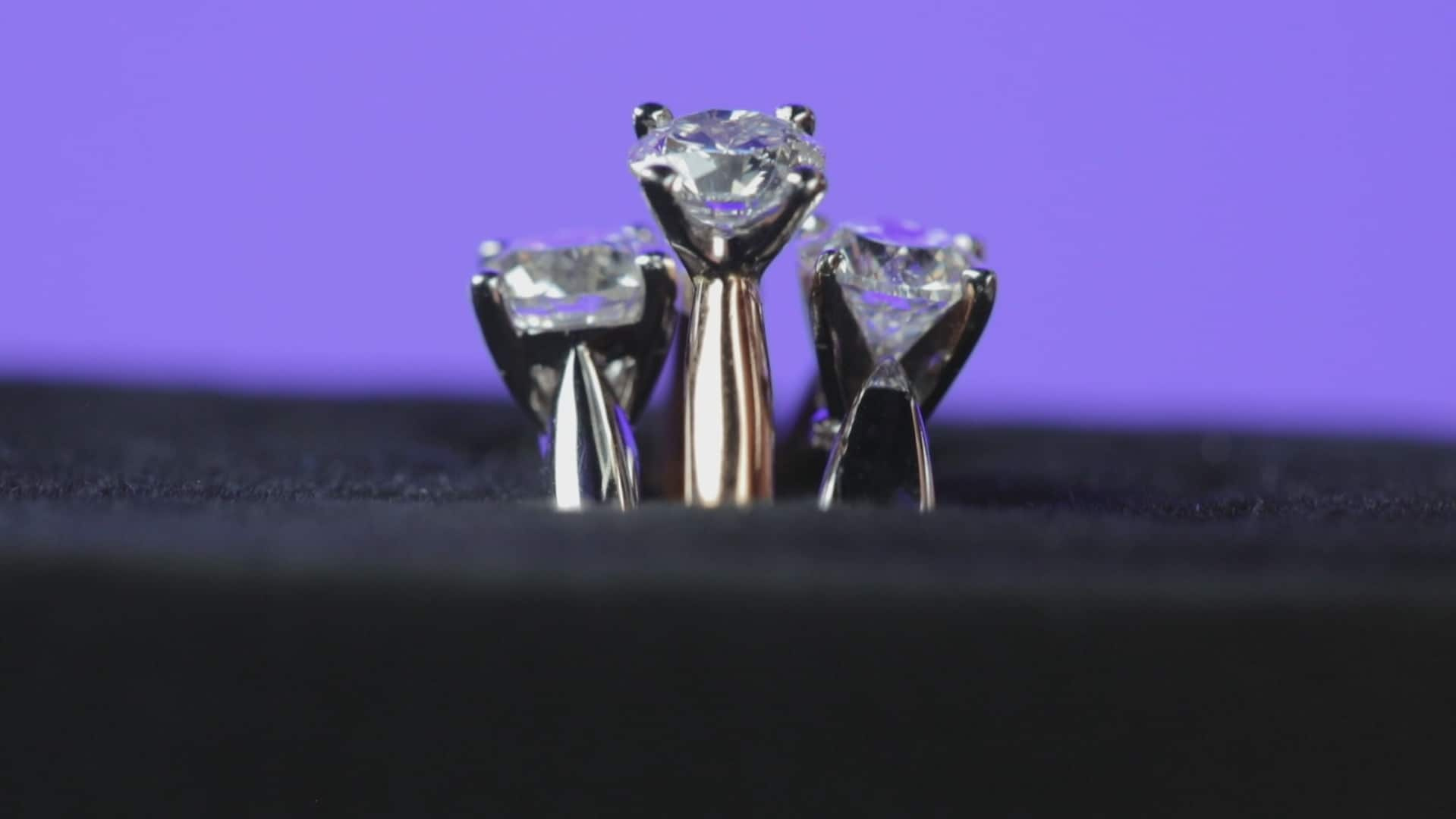The real deal on diamonds; your online crush may be a robot: CBC’s Marketplace cheat sheet | CBC News

Miss something this week? Don’t panic. CBC’s Marketplace rounds up the consumer and health news you need.
Want this in your inbox? Get the Marketplace newsletter every Friday.
Hidden camera reveals false claims some retailers make during diamond sales
Marketplace reveals misleading claims and inconsistent grading reports in the diamond industry.
While shopping undercover at some of Canada’s top jewellers, Marketplace journalists came across sales pitches filled with false claims and inconsistent diamond grading reports, all of which could lead consumers to question whether they got what they paid for.
Last year, Canadians who purchased a diamond ring spent on average just over $4,300, according to Edahn Golan Diamond Research & Data Ltd. Marketplace journalists posed as secret shoppers to capture the sales pitch on hidden camera at three of Canada’s most popular value retail jewelry chains: Peoples Jewellers, Ben Moss Jewellers, and Michael Hill, visiting three locations for each retailer in Ontario and Alberta.
Each store sold diamond rings backed by grading reports with specifications for each of the so-called four Cs — cut, colour, clarity and carat. Employees often touted these documents as ironclad, with very rare discrepancies.
However, industry experts say that’s not the case, and inconsistencies can be found between reports provided by different grading labs, which can have significant impacts on a diamond’s independent appraisal value.
“Any one of the features can make anywhere from 20 to 30 to 40 per cent difference,” said Steve Knight, a Hamilton, Ont., appraiser who’s been valuating gems for over 20 years. Read more
Marketplace gets the real deal on diamonds in their full investigation airing Friday at 8 p.m., 8:30 p.m. in Newfoundland, on CBC TV and CBC Gem.
The loss of support for long COVID has patients looking to fill gaps in care

It’s been two years since Denise Morneau found out she had COVID-19, but she’s still waiting for some of the symptoms to subside.
She says she hasn’t recovered her sense of smell or taste, gets sporadic headaches that come with a feeling of pressure in her head and has problems with her balance sometimes.
Morneau was a regular participant at Hôtel-Dieu Grace Healthcare’s COVID Recovery Program, which included consultations with occupational and physio therapists and a support group led by a social worker.
In July 2022, that program was scrapped because of a lack of funding and Morneau said that has left many people with nowhere to go for support.
“The government somehow folded all of this and so now we’re stuck” said Morneau.
Janice Dawson, vice-president of restorative care and chief nursing executive at Hôtel-Dieu Grace Healthcare, said the program didn’t get any extra funding — “all of the resources were from either existing resources or additional resources that we added.”
“We were in a situation where we could just no longer sustain the clinic in the way it was currently being operated with those existing resources,” she said.
Morneau said she and another support group member organized meetings at a Tim Hortons once every two weeks, but attendance is down from when the recovery program was running and there is no social worker leading the group.
Dr. Kieran Quinn, an expert long COVID researcher and clinician, said the loss of the program speaks to problems with the health-care system as a whole.
“It’s more concerning news that there are inequalities in our system,” he said. Read more
Online romance scammers may have a new wingman — artificial intelligence

Did you find love in online dating this Valentine’s Day?
Well, the voice you hear on the other end of your phone call may not be who you think it is; the person you’re texting with could really be a bot, and the face in a photo or video on your favourite dating app might not even exist.
Technological advancements in artificial intelligence are creating the potential to fuel romance scams, said Jeff Clune, an associate professor of computer science at the University of British Columbia.
Scammers now have “more tools in their tool box to hoodwink people, especially people who are not aware of recent advances in technology,” Clune said in an interview.
Such advancements include voice simulators, face generators and deepfakes — in which an existing image or video is used to create fake but believable video footage. Another set of advancements is chat bots, like ChatGPT, which generate humanlike text responses on all sorts of online platforms.
The Canadian Anti-Fraud Centre reported that romance scams skyrocketed during the massive shift online caused by the COVID-19 pandemic. It said the fraud schemes often involve convincing a victim to enter an online relationship to develop trust and affection. Swindlers then use that emotional leverage to request money, cryptocurrency, gifts or investments.
The centre has warned that Valentine’s Day provides an “opportunity for fraudsters to target Canadians looking for a relationship.” Its latest available data revealed 1,928 reports of romance scams totalling more than $64.5 million in losses in 2021, a nearly 25 per cent jump from the year before. Read more
Have you been swindled in an online relationship? Catfished, scammed or duped? We want to hear about it. Write to us at [email protected].
What else is going on?
Bye bye, Bed Bath and Beyond
The Canadian division is closing all 54 stores, plus 11 buybuy BABY stores.
This January was the worst for home sales since 2009
CREA said sales were down 37.1 per cent compared with a year ago.
Hyundai and Kia will update their software after TikTok-inspired auto thefts
TikTok highlighted the vehicles’ lack of immobilizers, a key anti-theft device.
Marketplace needs your help

Have you ever had a reservation for a rental car, only to show up and be told a vehicle wasn’t available? We want to hear about it. Reach us at [email protected].

Have you seen a buzz-worthy product that seems too good to be true? Bought a product online and it didn’t live up to expectations? We want to hear about it. Email us at [email protected].

Catch up on past episodes of Marketplace on CBC Gem.
Share this news on your Fb,Twitter and Whatsapp
Times News Express:Latest News Headlines
Times News Express||Health||New York||USA News||Technology||World News
